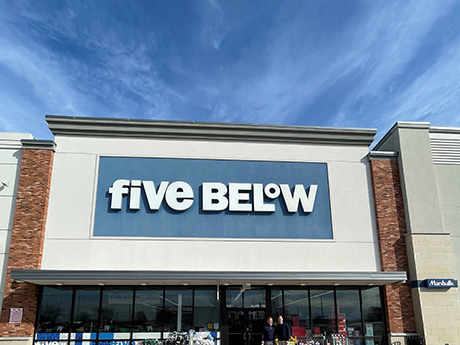By Ryan Johnson and Tyler Grisham, managing partners and market leaders, SRS Real Estate Partners
Those who live and work in Dallas-Fort Worth (DFW) should be grateful for the metroplex’s strong fundamentals. There are a lot of macro-level factors that are out of whack and hurting the commercial real estate business, but there are also a lot of macro factors working in favor of DFW that not many major markets in the United States can claim.
Thinking glass half-full, DFW has enjoyed exceptional growth in employment, housing and population over the last decade. According to the U.S. Census Bureau, DFW now boasts nearly 8 million residents, which makes it the nation’s fourth-largest metropolitan area. According to the Dallas Regional Chamber, 14 major companies relocated to North Texas in 2023 — Kelly Moore Paint Co., Inbenta, McAfee Corp., Frontier Communications and West Shore Homes, among others.
Thinking glass half-empty, DFW has sky-high construction costs, the highest interest rates in recent memory, highest exit cap rates/lowest valuations in recent memory and just a general market mentality that causes developers, banks and investors to exercise great caution.

Active Segments, Trends
Given these challenges, it may be surprising that there are retailers that are still actively pursuing deals entering 2024. While some retailers might have pause in an election year, there are still quite a few users that are adapting to the economic environment and finding ways to get deals done — especially those with healthy margins.
Many of the most active concepts can be categorized as essential-needs retailers — grocers, discount retailers, quick-service restaurants. Similar to the economic slowdown of 2009-2010, these concepts generally perform better when the economy is facing challenges. Consumers naturally focus their spending on necessities and more affordable food, goods and services when they have less discretionary income.
Examples of essential needs retailers that are actively expanding or searching for sites in DFW include: Dollar Tree, Target, T.J. Maxx, Ross Dress for Less, Five Below, Popshelf, Planet Fitness, Tractor Supply, Costco, H-E-B, Dutch Bros. Coffee, Tim Hortons, Starbucks, Raising Cane’s, Chick-fil-A, Cava, Swig, Chipotle Mexican Grill and Panda Express.

Liquidity/Cap Rate/Underwriting Issues
The biggest issue in this market is, without question, liquidity. Banks aren’t seeing proactive refinancing (as they have the last five-plus years) due to current interest rates being significantly higher than those at which many commercial loans were originated. That causes banks to not be able to access their cash and re-loan it out at current (higher) interest rates. Developers are trying to sell properties today that were underwritten 18 to 24 months ago. Often these properties sit on the market and do not move.
One simple metric to track as a function of liquidity is the number of single-tenant retail stores leased to Starbucks that are on the market for sale. When the secondary market was pretty frothy, you’d see single-digit numbers of Starbucks-occupied stores for sale nationwide, and they would trade super quickly. Most had multiple offers. In today’s environment, you see over 100 for sale, and they are not moving as quickly. Build-to-suit developers are not wanting to sign up for projects that they do not think they can sell, especially if they have several assets on the market already that are not moving.
Construction Costs
Herein is a simplified look at construction costs to avoid getting into the weeds too much: Construction costs have basically doubled over the last five years. Rents have increased generally with inflation, but construction costs have increased at a far more rapid pace than rents.
The discrepancy between these two metrics makes it extremely difficult to validate new construction unless an owner’s rents are significantly above market. Some tenants with healthy margins willingly sign up for above-market rents because their business models can accommodate it, but many mom-and-pop tenants that historically have driven retail developments simply cannot go this route.
Positive Market Conditions
The DFW metroplex continues to be a focal area for companies looking to locate in a business-friendly state with a large employee pool, affordable housing, quality school systems, no state income tax and a robust and convenient transportation network.
The massive influx of corporate relocations has fueled growth of DFW’s jobs, population and housing. Economist Ray Perryman believes Texas will generate over 1.3 million new jobs by 2027, and one-third of them will be in DFW. Thanks to this continued expansion, DFW should be relatively insulated from downturns and thereafter ramp up development activity and rebound faster than many other parts of the country.
A lot of projects with plenty of tenant interest have been stuck in the planning stages due to current economic conditions. Hopefully developers will be able to work through the financing challenges to kick these projects off in the new year. Until they do, active retailers will likely continue to compete for limited second-generation space given DFW’s low vacancy rate (4.4 percent as of late 2023, according to CoStar).
Overall, going into 2024, DFW appears to be relatively insulated from economic downturns, and the metro’s strong fundamentals and long-term growth trajectory suggest relative resilience compared to other markets, with potential for a rebound in retail development.
With the Federal Reserve announcing that it will hold rates steady for now and their committee members signaling at least three rates cuts in 2024, there is a lot to be thankful for in DFW as the overall financial climate shows signs of trending in the right direction.
Ryan Johnson and Tyler Grisham are managing principals and market leaders for SRS Real Estate Partners in Dallas-Fort Worth.


